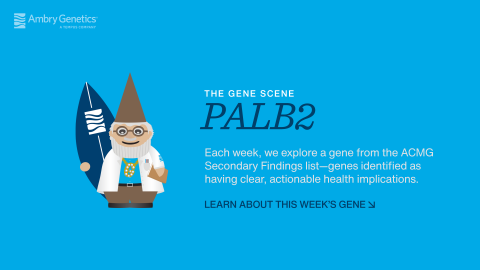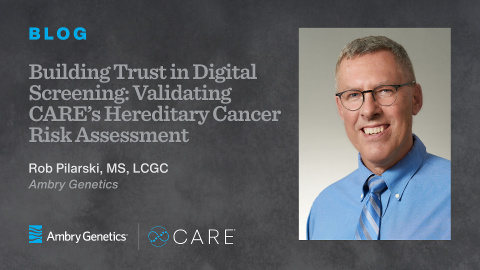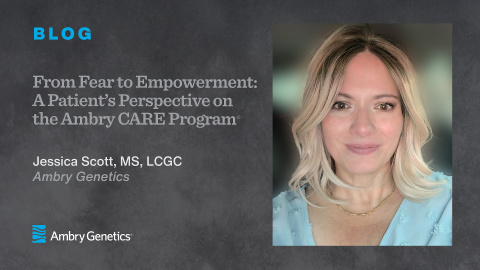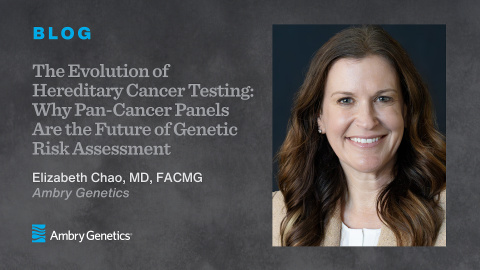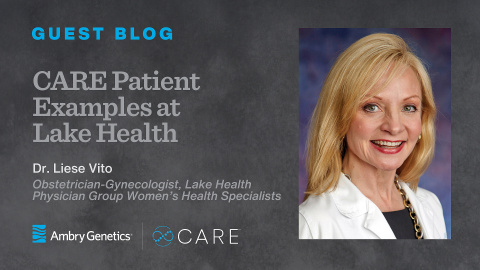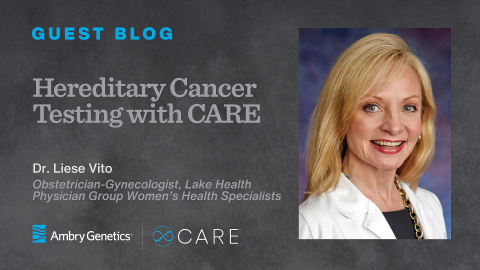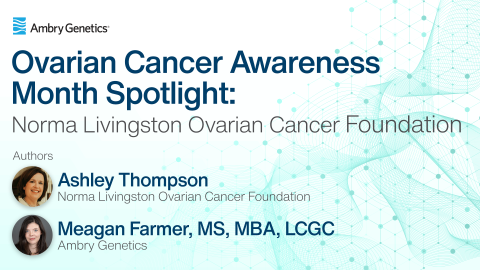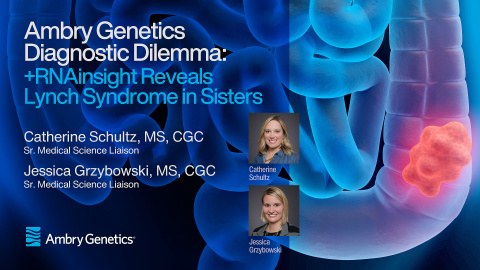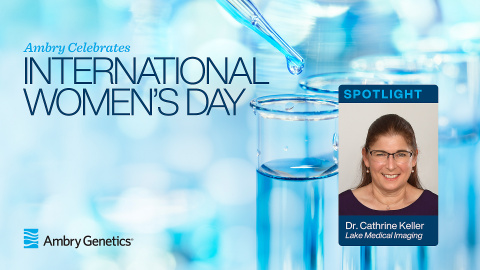- By Shabnam Asgari, MS, CGC
- Posted November 4, 2025
The Gene Scene: PALB2
Welcome to the Gene Scene! Each week, we will explore a gene from the ACMG Secondary Findings list—genes identified by the American College of Medical Genetics and Genomics as having clear, actionable health implications.These genes are included because they’re linked to serious but preventable or manageable conditions when identified early.…
- By Robert Pilarski, MS, LGC
- Posted June 26, 2025
Building Trust in Digital Screening: Validating CARE’s Hereditary Cancer Risk Assessment
As a certified genetic counselor who spent eleven years on the National Comprehensive Cancer Network® (NCCN®)'s committee for the NCCN Clinical Practice Guidelines in Oncology (NCCN Guidelines®) for breast, ovarian, and pancreatic cancers, I've witnessed firsthand the challenges clinicians face in accurately identifying patients who meet criteria…
- By Jessica Scott, MGC, CGC
- Posted January 15, 2025
From Fear to Empowerment: A Patient's Perspective on the Ambry CARE Program
We talk about the Ambry CARE Program® (CARE) a lot – how it helps providers identify high-risk patients, offers genetic testing and genetic counseling at scale, and gives patients insights to help them better manage their health. All of that is very powerful, but people also often ask what CARE looks like from the patient’s perspective.…
- By Elizabeth Chao, MD, FACMG
- Posted October 17, 2024
The Evolution of Hereditary Cancer Testing: Why Pan-Cancer Panels Are the Future of Genetic Risk Assessment
Hereditary cancer testing has changed dramatically over the past decade, reshaping how healthcare professionals diagnose and manage genetic risks. Initially, testing focused on specific genes like BRCA1 and BRCA2, linked to breast and ovarian cancers. These gene tests were quite limited, only looking at a small set of mutations…
- By Liese Vito, MD
- Posted February 7, 2024
CARE Patient Examples at Lake Health
Many patients are anxious about their family history—more than providers realize. In some cases, they may feel like a ticking time bomb with no options. In Part One of this blog series, I talked about The Ambry CARE ProgramTM and how Lake Health has been able to use it to identify more high-risk patients, increase family history and cancer risk…
- By Liese Vito, MD
- Posted January 24, 2024
Hereditary Cancer Testing with CARE
According to studies, 93% of high-risk women who qualify for breast MRI have not had one.1 97% of women at risk for hereditary breast/ovarian cancer have not had genetic testing.2 These healthcare gaps mean high-risk patients are being missed when it comes to proactive and preventative care. As a practicing OB-GYN for twenty years, I have seen…
- By Ashley Thompson
- Posted September 14, 2023
Ovarian Cancer Awareness Month Spotlight: Norma Livingston Ovarian Cancer Foundation
Norma was a healthy, active 65-year-old woman who was rarely sick and had always been proactive about her health. She went to her internist complaining of weight gain, abdominal discomfort, and a chronic cough. When the diagnosis was finally made, Norma had stage 4 ovarian cancer. She endured nine hours of surgery, countless rounds of chemotherapy,…
- By Catherine Schultz, MS, CGC
- Posted March 23, 2023
Ambry Genetics Diagnostic Dilemma: +RNAinsight® Reveals Lynch Syndrome in Sisters
In recognition of Colon Cancer Awareness Month, Ambry would like to share the story of Jane and Julie Smith (not their real names) – sisters and cancer survivors. Jane was diagnosed with colon cancer in 2004 at the age of 36. While she was concerned about her diagnosis and family history of ovarian cancer, genetic testing was not widely available…
- By Jodi Tahsler
- Posted March 8, 2023
International Women’s Day: Spotlighting Cathrine Keller, MD, A Woman of Substance
Being a “woman of substance” requires a passion for benefitting the greater good. Dr. Cathrine Keller has it in abundance. “We believe the greater good is to put our patients’ health and safety at the epicenter of every decision we make.” A woman of substance seldom has a neutral position. As a leader in the fight against breast cancer,…
- By Layla Shahmirzadi, MS, CGC, LGC
- Posted September 4, 2018
3 Things You Need to Know about OvaNext
Ovarian cancer can often appear quietly, with non-specific symptoms, making it difficult to detect at an early stage. Knowing if someone is at an increased risk for ovarian and other cancers can be critical for guiding early detection, prevention, or treatment. Genetic testing can help identify patients with hereditary cancer, allowing for personalized…
